Honouring women leaders driving change
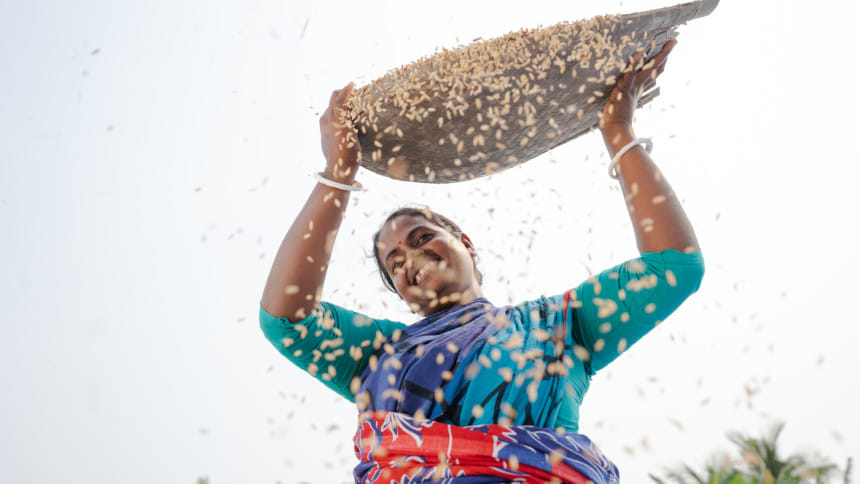
Nazrul Islam Ritu: Breaking barriers with inclusive leadership
Nazrul Islam Ritu made history as the first elected chairperson from Bangladesh's hijra (third gender) community, transforming the Trilochanpur Union Parishad in Jhenaidah with inclusive leadership. Despite societal discrimination, Ritu has dedicated her life to uplifting marginalized groups, proving that representation in governance can drive meaningful change.
From a young age, Ritu experienced alienation due to her gender identity. Seeking acceptance, she joined a hijra community but maintained ties with her village, gradually becoming a trusted figure through social work. Her efforts during the Covid-19 pandemic, providing food and financial aid, strengthened this bond and ultimately led to her election.
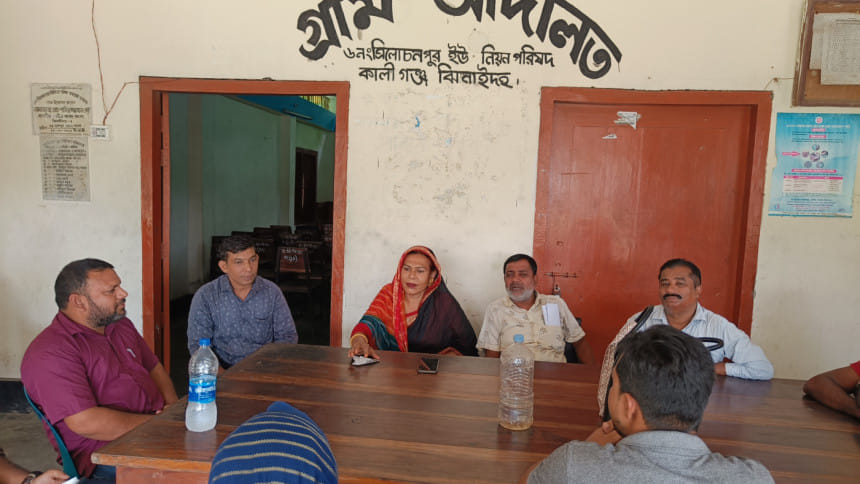
Now, she serves all residents—regardless of gender or background—mediating disputes, ensuring community development, and advocating for equal rights. "I don't just represent my community," Ritu says. "I belong to everyone, and my priority is collective progress."
Ritu's leadership has been further bolstered by her involvement in the Activating Village Courts in Bangladesh (AVCB) Phase III Project, a joint initiative by the Government of Bangladesh, the European Union, and UNDP. This project aims to enhance access to justice in rural areas by empowering local leaders like Ritu to effectively mediate disputes and ensure community development.
Her leadership has fostered harmony and inspired others in the third-gender community to pursue public service. Her inclusion in the national school curriculum as a role model further cements her impact. Through resilience and dedication, Ritu has not only shattered barriers for hijra individuals but also set a precedent for a more inclusive society.
Tandra Mollik: Championing climate resilience in Bagerhat
Tandra Mollik, 28, from Bagerhat, has turned adversity into advocacy, empowering women in one of Bangladesh's most climate-vulnerable areas. Struggling with rising salinity and erratic weather, her family fell into deep poverty when her husband lost his job during the Covid-19 pandemic.
Identified as climate-vulnerable under the LoGIC project, Tandra received training and financial support, using it to launch climate-adaptive livelihoods such as sheep rearing and watermelon cultivation. But she didn't stop at securing her own future—she became a community advocate for climate resilience.
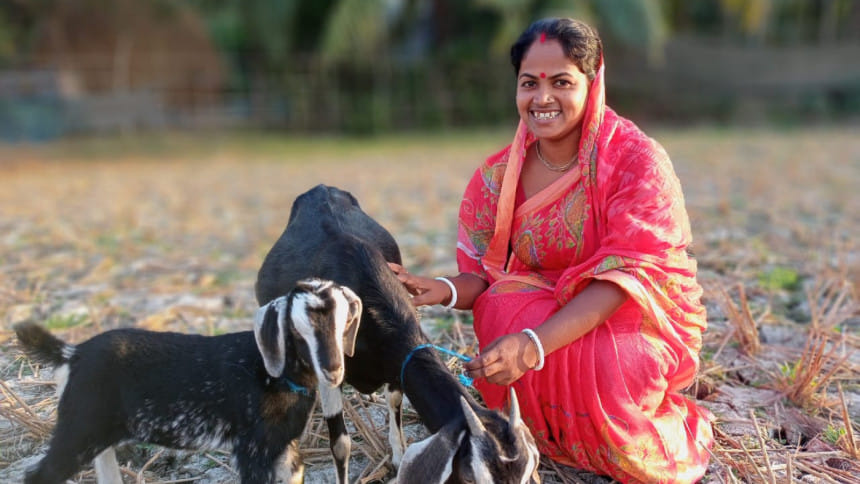
Engaging with civil society organizations and local government, she educates other women on sustainable farming, safe drinking water access, and disaster preparedness. A first responder during cyclones, she ensures families reach shelters in time. Additionally, as a Community Clinic Support Committee member, she assists pregnant women and children in accessing healthcare.
Recognizing her contributions, the local government provided her with a 3,000-litre rainwater harvesting system. Tandra's efforts exemplify how empowered individuals can uplift entire communities, making her not just a survivor of climate hardship, but a leader shaping a more resilient future.
Rogina Begum: A journey from survival to social impact
For Rogina Begum, 34, from Paschim Balipara in Pirojpur, life was a cycle of hardship. Married off young due to poverty, she endured years of domestic abuse before finding her path to independence. Determined to secure a better life for her children, she started working, but financial struggles remained.
Her breakthrough came when she was selected for the SWAPNO Project, which provided a stable job and financial literacy training. With her earnings, she invested in livestock and small-scale fish farming, generating a sustainable income. But Rogina didn't stop there—she became a force for change in her community.

She now advocates for girls' education, collects and donates school supplies for underprivileged children, and supports families in medical emergencies. Last winter, she gathered and distributed warm clothes to struggling families, ensuring no one in her village suffered in the cold.
"I know what it's like to feel hopeless," Rogina shares. "Now, I want to help others find their way out of hardship." Through resilience and generosity, she has transformed not just her own life but has become a pillar of support for her entire community.
Champa Chakma: Defender of justice in the Chittagong Hill Tracts
Champa Chakma, a young leader from Rangamati's Longadu Union, is breaking barriers as a female Karbari (village chief) and an advocate for women's rights. As the organizing secretary of the CHT Female Headman Karbari Association, she fights against gender-based violence, child marriage, and social injustice.
Her most remarkable intervention was saving a 15-year-old girl from a forced marriage after a village tribunal's harsh ruling. Understanding the dangers of such decisions, she mobilized local authorities and successfully overturned the verdict. The girl was allowed to continue her education instead of being married off against her will.

Champa also leads anti-drug campaigns, ensuring youth in her community stay away from addiction. She provides mediation in local disputes, fostering peaceful coexistence among different ethnic groups. "Change starts with action," she asserts. "We cannot wait for someone else to fix our problems."
Through her leadership, Champa is not just a guardian of her people's rights but a mentor inspiring other women to take on leadership roles. Her work is redefining what it means to be a community leader in the Chittagong Hill Tracts.
Kabita Banerjee: Financial empowerment in climate-affected Khulna
Living in flood-prone Hariharpur village in Khulna, Kabita Banerjee struggled for years alongside her husband, fishing for crabs in the Sundarbans to make ends meet. Frequent floods and rising salinity made agriculture impossible, forcing many to migrate. But Kabita chose to stay and fight for a better future.
With support from the LoGIC Project, she learned climate-adaptive livelihood skills. Her first attempt at crab farming failed due to floods, but she persisted. Equipped with digital financial literacy, she opened a mobile cash transfer hub, making banking services accessible to fellow villagers. Her success encouraged three other women to start their own businesses.
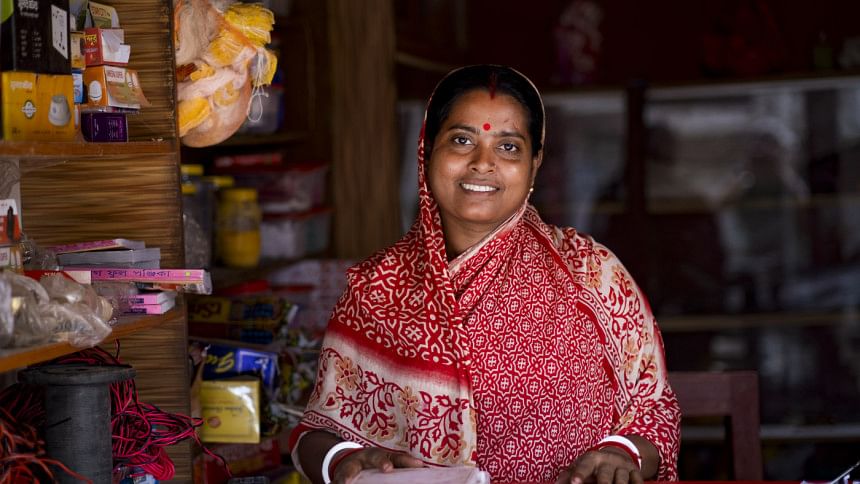
As head of the Ward No. 8 Climate and Livelihood Development Cooperative Society, she now mentors 147 women on financial independence and savings. "Empowerment isn't just about surviving; it's about helping others thrive," she says.
Kabita's journey demonstrates how access to skills and technology can transform entire communities. Her work has not only secured her family's future but has also paved the way for women's financial inclusion in one of Bangladesh's most climate-vulnerable regions.
Written by Zarif Faiaz

 For all latest news, follow The Daily Star's Google News channel.
For all latest news, follow The Daily Star's Google News channel. 


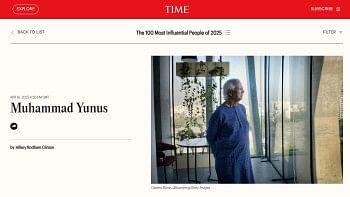
Comments